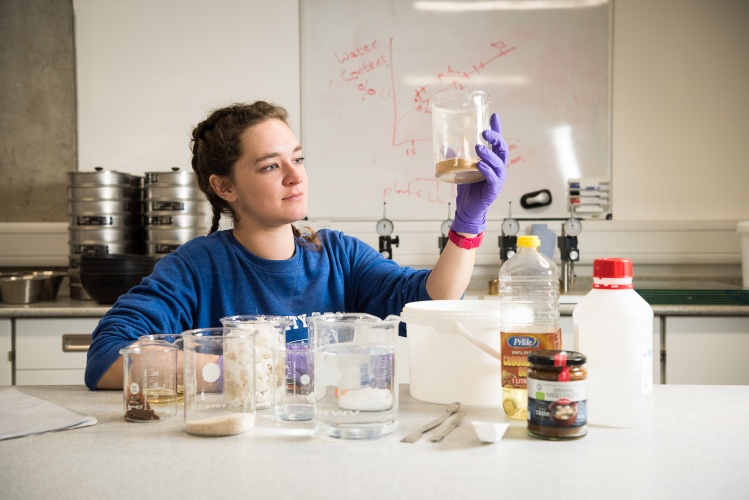Bath University is leading a project which uses simulated fake poo to study new methods of treating sanitation in developing countries.

Naomi Deering mixing up faecal substitute in the lab (Credit: Bath University)
According to the university, 2.7 billion people around the world do not have access to a flushing toilet. Many of those must rely on static sanitation systems like pit latrines, which unsurprisingly can be hotbeds of disease. By using shallow beds to solar dry faecal sludge, it’s possible to naturally kill off parasite eggs and pathogens such as E.coli and Salmonella.
To test the efficacy of sanitation solutions, the Bath team is experimenting with simulated human waste. The material needs to be analogous to the faecal sludge found in septic tanks and pit latrines, which stabilises over time. To achieve this, the researchers have been using a concoction consisting of yeast, hemp fibre and shredded tissue, peanut oil, calcium phosphate and water.
“Developing and testing batches of fake poo isn’t something many people can say they do as part of the day job,” said Naomi Deering, a postgraduate researcher in Faecal Sludge Management at Bath. “This area of research at times may not be the most pleasant but the potential impact of this project makes this work so worthwhile.”
“Solar-drying faecal sludge in drying beds can provide a low-energy solution for sustainable faecal sludge management in developing countries. Whilst there has been great progress made in the installation of millions of toilets across the world, there is still a lot more work to be done to achieve the sustainable development goal of access to improved sanitation for all by 2030.”
“The next challenge is to find safe and sustainable ways of treating and disposing of large quantities of untreated human waste. Especially in developing countries, there is a growing urgency to improve the current situation and develop low cost, low energy solutions which don’t affect existing toilet technology.”





Swiss geoengineering start-up targets methane removal
No mention whatsoever about the effect of increased methane levels/iron chloride in the ocean on the pH and chemical properties of the ocean - are we...